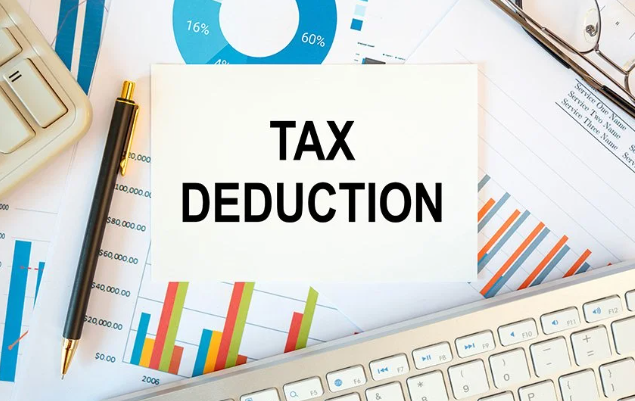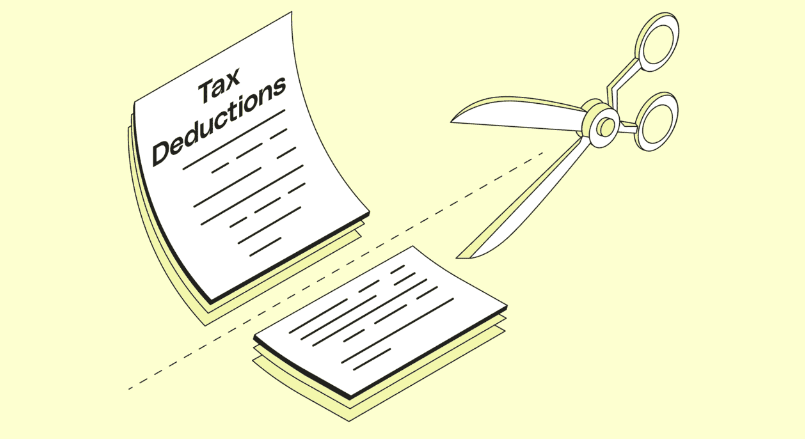We all know the saying, “nothing is certain except death and taxes.” But what if you could reduce the amount of tax you pay legally? That’s right! With tax deductions, you can significantly reduce your taxable income and keep more of your hard-earned money in your pocket. This article is your go-to cheat sheet for tax deductions, carefully curated and edited by tax experts to help you understand and make the most of these tax-saving opportunities. For a personalized experience, check out att my results for specific tax-saving tips tailored to your unique situation.
What are Tax Deductions?

Simply put, tax deductions are expenses that you can subtract from your taxable income during tax season. These deductions help reduce your overall tax liability, leading to substantial savings. They come in different forms – from simple ones like medical expenses to more complex ones like business-related deductions.
Individual Tax Deductions: Maximize Your Personal Savings

Medical Expense Deductions
A common tax deduction, often overlooked, relates to medical expenses. The IRS allows taxpayers to deduct preventive care, treatment, surgeries, dental, vision care, and more, subject to certain conditions. However, only the amount exceeding 7.5% of your adjusted gross income (AGI) can be deducted.
Charitable Deductions
Your generosity can help you at tax time. Donations made to IRS-approved charities can be deducted from your taxable income. Whether it’s cash or kind, remember to keep a record of these transactions for smooth sailing during tax season.
Education Tax Deductions
The costs of education can add up, but luckily, tax deductions can alleviate some of the burdens. Students can benefit from deductions for tuition, books, and supplies related to their education.
Small Business Tax Deductions: Reduce Your Business’s Tax Burden
Owning a business comes with its fair share of expenses. Luckily, many of these costs are tax-deductible, leading to significant savings.
Home Office Deductions
With the rise of remote work, the home office deduction has become more prevalent than ever. If a portion of your home is used exclusively and regularly for business, you may deduct related expenses, such as mortgage interest, insurance, utilities, repairs, and depreciation.
Self-Employed Deductions
If you’re self-employed, you can deduct business-related expenses, including travel, internet and phone bills, advertising, and even business meals.
Strategies to Maximize Tax Deductions Legally
Itemize Deductions
If your total deductions exceed the standard deduction, it may be beneficial to itemize deductions on your tax return. This can lead to greater savings, especially if you’ve had large expenses during the year.
Keep Good Records
Keeping detailed records of all your deductible expenses throughout the year is critical. It can make the process of claiming your deductions easier and more accurate.
Use a Tax Professional or Software
Tax laws can be complex, and missing a deduction can cost you money. Consider working with a tax professional or using tax software to ensure you’re not leaving money on the table.
Your Go-To Tax Deduction Calculator
With the right resources, calculating your tax deductions doesn’t have to be a daunting task. A tax deduction calculator can be a valuable tool, taking into account various aspects of your income and expenses to provide an accurate picture of your potential tax savings.
Cheat Sheet for Tax Deductions: Further Insights
After acquainting ourselves with the initial aspects of tax deductions, let’s delve deeper and unravel more facets that can help you maximize your savings.
Investment-Related Deductions
Investments, when managed wisely, can prove to be a significant source of income. What many might not realize is that certain expenses related to these investments are tax-deductible. These include the cost of investment advice and expenses related to rental property. However, with the tax reform in 2018, some of these deductions are limited, so it’s essential to consult with a tax professional for precise information.
Retirement Account Deductions
Retirement savings not only ensure a comfortable future but can also offer tax savings now. Contributions to retirement accounts like 401(k)s and traditional IRAs are typically tax-deductible. However, income limits may apply, and the rules can be complicated. Therefore, be sure to fully understand these aspects before claiming deductions.
Education-Related Deductions for Parents
Education doesn’t come cheap, but tax deductions can alleviate some of this burden. Parents can take advantage of the American Opportunity Tax Credit and the Lifetime Learning Credit for education-related expenses. Moreover, student loan interest is also deductible under certain conditions.
Vehicle Expenses Deductions
If you use your vehicle for business, you might be eligible to deduct certain costs. These can include expenses for maintenance, insurance, gas, and depreciation. Keep in mind that personal use of the vehicle is not deductible.
Above-The-Line Deductions
Above-the-line deductions are especially valuable as they help reduce your adjusted gross income, which in turn can make you eligible for additional tax breaks. They include deductions for educator expenses, student loan interest, and contributions to Health Savings Accounts (HSAs), among others.
Exploring Tax Credits and Deductions
In addition to deductions, it’s important to understand the role of tax credits. While tax deductions lower your taxable income, tax credits directly decrease your tax bill. Some notable tax credits include the Earned Income Tax Credit (EITC), Child and Dependent Care Credit, and the American Opportunity Credit.
FAQs on Cheat Sheet for Tax Deductions
“What are above-the-line deductions?”
Above-the-line deductions are deductions that you can take to reduce your adjusted gross income (AGI). These include educator expenses, student loan interest, and HSA contributions, among others.
“Are business meals and entertainment expenses tax-deductible?”
Yes, business meals are deductible up to 50%, provided they are not lavish or extravagant, and are necessary for your business. However, most entertainment expenses are no longer deductible under the tax reform that went into effect in 2018.
“How do tax deductions affect my tax return?”
Tax deductions reduce your taxable income. This means you have less income to be taxed, leading to a lower tax bill or a higher refund when you file your tax return.
“Can I still get deductions if I take the standard deduction?”
Yes, some deductions, known as “above-the-line” deductions, can still be taken even if you claim the standard deduction. These include deductions for student loan interest, HSA contributions, and more.
“Are home office expenses tax-deductible?”
Yes, if a part of your home is used exclusively and regularly for your business, you may be eligible to claim home office deductions.
“How to claim tax deductions for retirement contributions?”
Contributions made to certain retirement accounts such as a 401(k) or Traditional IRA are often tax-deductible. You claim these deductions by recording them on your tax return.
“Are investment-related expenses deductible?”
Some investment-related expenses are tax-deductible. However, the rules can be complex, and you should consult with a tax professional or refer to the IRS guidelines for detailed information.
“What deductions can I claim as a student?”
As a student, you can claim deductions for tuition, fees, and course-related books, supplies, and equipment.
Also Read: Indiana Rules of Trial Procedure (All You Need to Know)
Conclusion
In conclusion, understanding cheat sheet for tax deductions is the first step towards maximizing your tax savings. This cheat sheet offers a comprehensive guide to help you navigate this often complex terrain. Remember, it’s not what you make but what you keep that counts, and every dollar saved in taxes is a dollar added to your net worth. Be proactive in learning about these deductions and take full advantage of the savings available to you.

![SMSF Investment Strategy the Benefits and Pitfalls of SMSFs Investing in Gold [2023] 7 SMSF Investment Strategy the Benefits and Pitfalls of SMSFs Investing in Gold](https://filmyhuts.com/wp-content/uploads/2023/06/SMSF-Investment-Strategy-the-Benefits-and-Pitfalls-of-SMSFs-Investing-in-Gold-1-1024x576.png)
